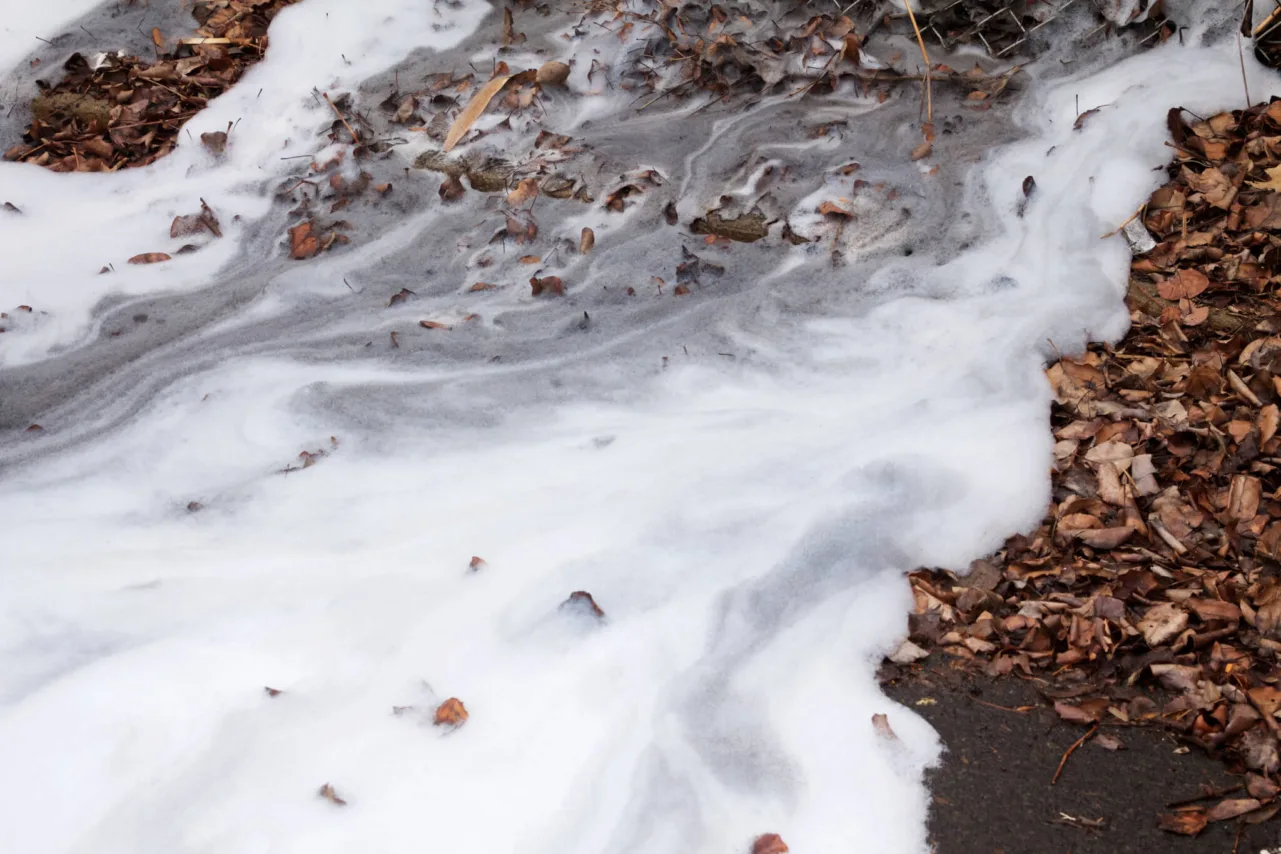
#image_title
Environmental advocates warn of health hazards that could result from a business lobby’s bid to hamstring the DNR.
Wisconsin residents’ health would be at great risk if business interests succeed in a lawsuit filed earlier this year that would limit the state’s ability to investigate environmental contamination and hold polluters accountable, a group of environmental and public health groups said Friday.
The lawsuit, filed in February by the conservative business lobby Wisconsin Manufacturers & Commerce (WMC) and Oconomowoc dry cleaner Leather Rich, Inc., seeks to curtail the state Department of Natural Resources’ (DNR) ability to regulate pollution of PFAS and other contaminants.
“Wisconsin would be forced back into the dark ages of environmental protection [if the lawsuit is successful],” said Dr. Beth Neary, a pediatrician and co-president of the Wisconsin Environmental Health Network.
Waukesha County Circuit Court Judge Michael Bohren on Friday denied a request from Midwest Environmental Advocates to allow five environmental and public health groups and individuals to intervene in the lawsuit.
However, the groups will be able to submit arguments on behalf of retaining the Spills Law, Wisconsin legislation in place since 1978 that provides protections against exposure to substances deemed harmful to people. The law requires that companies report spills of any substance thought to harm the environment.
Midwest Environmental Advocates will submit arguments on behalf of itself and other organizations that oppose the WMC lawsuit. Those groups include Citizens for a Clean Wausau, Clean Water Action Council of Northeast Wisconsin, River Alliance of Wisconsin, Wisconsin Environmental Health Network, and Doug Oitzinger, a former mayor and current alderman of Marinette. That city is the site of significant pollution from per- and polyfluoroalkyl substances, commonly known as PFAS.
PFAS, nicknamed “forever chemicals” because they don’t break down readily in the environment, have been linked to numerous health problems such as cancer, low birth weight, and thyroid hormone disruption. Research also shows they can suppress antibody production, reducing the immune system’s ability to to fight infections and reducing the effectiveness of vaccinations.
During a press conference before the court hearing, representatives of groups against the WMC’s action said the lawsuit’s effort to undermine the Spills Law would further endanger the health of state residents.
“The only thing we have to protect us … is the Spills Law. If the Spills Law goes away, it will be a disaster,” Oitzinger said. “This is not theoretical for me. I’m living with this contamination. My community is living with this contamination.”
RELATED: Marinette’s ‘Forever Chemicals’ Problem Could Take Forever to Solve
Oitzinger got involved in the fight to limit PFAS pollution in 2017 after contamination of the harmful substance in his hometown became public knowledge. Tyco Fire Products, a firefighting foam manufacturer that has been in the city since the 1960s, had learned four years earlier that PFAS from its facility were leaking into the groundwater, but the company failed to notify the public until four years later.
Oitzinger subsequently worked with state lawmakers to draft a bill to address PFAS pollution, but that measure was watered down by the Republican-led Legislature at the last minute and contained virtually none of the protections he had sought. WMC has opposed subsequent efforts to regulate PFAS in Wisconsin even as the number of known contamination sites of the substance continues to grow. About 80 PFAS contamination sites have been discovered in Wisconsin, with some of the worst pollution in Marinette, Peshtigo, Madison, and La Crosse.
Scott Manley, WMC executive vice president of government relations, has said the DNR should be required to go through a rulemaking process to determine a list of what the agency considers hazardous substances, and at what levels they are dangerous.
Currently, there is no defined list in Wisconsin of hazardous substances, which can include not only harmful chemicals, but also other less-dangerous materials that could impair waterways. State law allows the DNR to regulate the discharge of hazardous substances, defined as those that can harm human health and safety, or the environment, depending on the amount spilled and the concentration.
The US Environmental Protection Agency on Wednesday announced plans to for the first time set limits on PFAS levels certain manufacturers and businesses can discharge into wastewater. However, Oitzinger and others said the review process for such regulations to be enacted will take years, and Wisconsin residents’ health will be further imperiled without Spills Law protections.
“This is the long regulatory process we shouldn’t have to wait for in Wisconsin,” said Tony Wilkin Gibart, executive director of Midwest Environmental Advocates.
Limiting the Spills Law would also hamper regulation of such public health concerns and lead poisoning, Wilkin Gibart said. Lead exposure to children through soil contamination is a major concern, he said, noting more than 100 such sites in Milwaukee are being addressed because of the Spills Law. The working poor and people of color experience a disproportionate amount of such pollution because of where they live, he said.
“The attack on the Spills Law is an attack on social justice,” Wilkin Gibart said.

Opinion: Many to thank in fair maps victory for Wisconsinites
On February 19, 2024, Governor Tony Evers signed into law new and fair state legislative maps, bringing hope for an end to over a decade of...

Opinion: Empowering educators: A call for negotiation rights in Wisconsin
This week marks “Public Schools Week,” highlighting the dedication of teachers, paras, custodians, secretaries and others who collaborate with...

Op-ed: Trump’s journey from hosting The Apprentice to being the biggest loser
Leading up to the 2016 election, Donald Trump crafted an image of himself as a successful businessman and a winner. But in reality, Trump has a long...

Not just abortion: IVF ruling next phase in the right’s war on reproductive freedom
Nearly two years after the US Supreme Court overturned Roe v. Wade, another court is using that ruling to go after one of the anti-abortion right’s...




